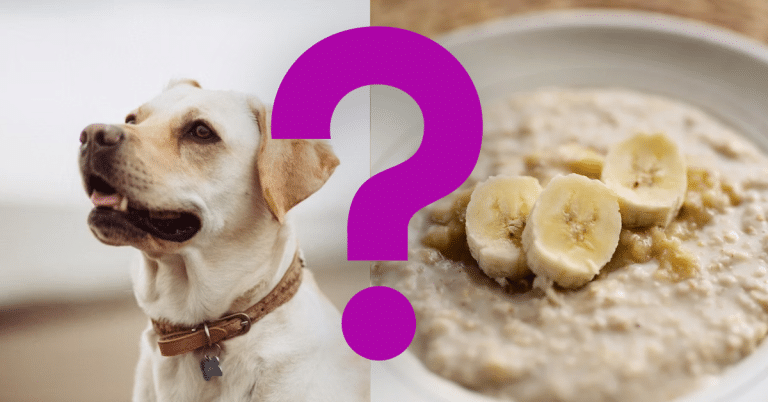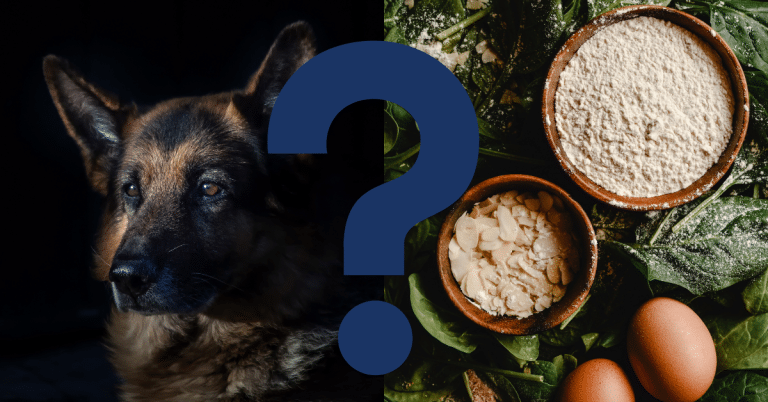Can Dogs Eat Mushrooms? A Vet’s Opinion

The succulent and palatable fruit bodies of several species of macrofungi are known as edible mushrooms. They can appear above the earth or below ground, where they can be manually harvested. But can you feed mushrooms to your dog?
Dogs shouldn’t typically consume mushrooms because many can be toxic to them. The signs of some toxic mushrooms can range from gastrointestinal distress to organ failure and even death. It can be challenging to distinguish between edible and toxic varieties, so it’s best to err on caution and never give mushrooms to dogs. However, some mushrooms are safe for dogs to consume. It’s crucial to seek veterinary care immediately if a dog eats mushrooms to avoid any possible health issues.
Benefits Of Mushrooms For Dogs
There need to be more studies on the potential health benefits of mushrooms for dogs, despite some mushrooms having been shown to have advantages for humans. Some canine food producers include particular kinds of mushrooms, like shiitake or reishi, in their products due to their alleged health advantages, which include the support of the immune system and anti-inflammatory properties. Some nutrient-rich mushrooms are abundant in nature and can benefit your dog. Their inclusion in your dog’s food can:
- Support renal and liver health
- nutritional support for creatures in need
- stabilize metabolism and blood sugar
- fatty liver disease prevention, weight reduction acceleration, and lowering of cholesterol
- a method to stop viral diseases
- Immune system boosting
- Lower your blood pressure
- Defend against heart illness
- combat and prevent malignancy
It’s crucial to remember that wide varieties of mushrooms are toxic to canines and can have adverse health effects. As a result, giving dogs mushrooms as a supplement or treat is usually not advised. It’s also crucial to always seek the advice of a veterinarian before introducing any new foods or supplements to your dog’s diet.

How To Safely Give X To Dogs
As mentioned earlier, it’s usually advised against giving dogs mushrooms because many of them can be toxic. However, if you want to add mushrooms to your canine’s diet, you should first speak with a veterinarian to find out if it’s safe for your dog and which mushrooms are suitable. Suppose your dog is allowed to eat mushrooms, as your veterinarian determines. In that case, it’s essential to pick safe and suitable varieties, such as shiitake or oyster mushrooms, and to only give them to your dog in small amounts as a treat or as a supplement to their regular diet.
To make mushrooms easier for your dog to digest, ensure they are entirely cooked and chopped into small pieces before serving. Keep your dog’s health in mind when using seasonings or sauces, and always watch your canine when introducing new foods to their diet. After feeding your canine mushrooms, cease right away and call your vet if you observe any symptoms of gastrointestinal upset or other ailments.
Can dogs eat mushroom variations?
According to VCA Animal Hospitals, medicinal mushrooms contain polysaccharides (complex sugars), proteins, and glycoproteins (sugar-protein compounds), all of which are the active components in mushroom supplements intended to have anticancer, anti-inflammatory, and immune-boosting effects.
Here are a few of the most typical:
- Turkey Tail Mushroom
Traditional Chinese medicine has employed turkey tail mushrooms, which are known to boost the immune system and benefit dogs with cancer.
- Reishi Mushroom
The antioxidant qualities of reishi mushrooms are well known and may improve immune reactions. Additionally, they might reduce blood pressure and slow blood clotting.
- Cordyceps Mushroom
Cordyceps Mushroom is used in conventional Chinese medicine. According to research, cordyceps may also lower blood sugar levels and have blood-thinning effects. This particular mushroom has both antifungal and antibacterial qualities.
- Chaga Mushroom
The Chaga mushroom has been used in traditional medicine throughout northern Europe and has been found to strengthen the immune system and lessen swelling and inflammation.
Will X Make A Dog Sick?
Many signs, including nausea, vomiting, diarrhea, abdominal pain, lethargy, seizures, and even mortality, can be brought on by some types of mushrooms that are poisonous to dogs. It’s crucial to keep your canine away from wild mushrooms because it can be challenging to distinguish between safe and toxic varieties.
If not thoroughly cooked or if they are eaten in large quantities, even healthy varieties of mushrooms can upset a dog’s stomach. You should only give your dog small amounts of mushrooms as a treat or as a supplement to their regular diet, and you should keep a close eye out for any indications of digestive upset or other side effects. Even if you’re unsure whether the mushrooms are toxic, you should call your veterinarian immediately if you think your canine may have eaten some mushrooms. Early intervention can improve the likelihood of a full recovery and help avoid serious health issues.

Vet’s Summary
Although some types of mushrooms may be beneficial for human health, giving mushrooms to dogs is generally not advised because many of them can be toxic and result in severe health issues. Even healthy varieties can upset your stomach if you only partially cook or overeat them. To find out whether it is safe for your dog to eat mushrooms and which kinds are suitable, it is crucial first to contact a veterinarian. If your veterinarian recommends, add a small number of mushrooms as a treat or a supplement to your dog’s regular diet. Carefully look for any symptoms of digestive upset or other problems. You should call your veterinarian right away if you think your canine may have consumed mushrooms.
Probiotics are good bacteria that can help dogs have better digestion, more vital immune systems, and general health. They can benefit dogs with allergies or other health concerns. Probiotics are available as supplements or in a few different dietary categories. However, before adding probiotics to your dog’s diet, speaking with a veterinarian is essential because some strains might not be appropriate for all dogs. To ensure that the probiotics are beneficial and to reduce the possibility of any adverse effects, it’s also critical to choose high-quality probiotic products and carefully adhere to dosing guidelines.
Videos To Watch
To find out more about feeding your dog mushrooms, watch this:
To know more about the mushrooms that are bad for your dog, watch this:






